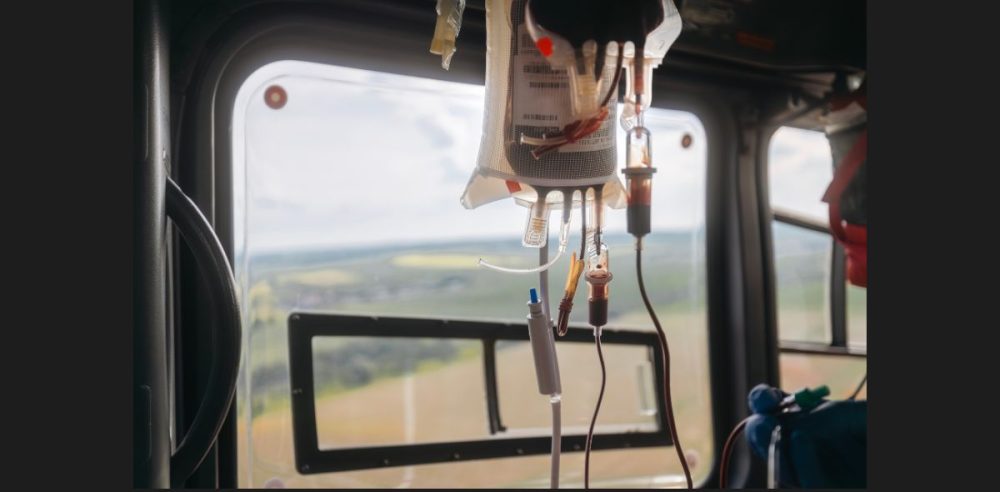Dallas Fire-Rescue is testing a new program that allows paramedics to begin transfusing blood to critically injured patients en route to the hospital.
The pilot program, which will run for six months, hopes to improve the survival chances of trauma victims, particularly those in remote areas where hospitals may be more than 30 minutes away.
At a press conference last week, interim DFR Chief Justin Ball said, “If it saves one life, it’s worth it, but we know it’s going to have a much bigger impact than that.”
The American Red Cross will partner with DFR to supply blood units for the program, according to a report from Axios. These units are stored in military-grade coolers, ensuring the blood stays at the correct temperature during transport. Paramedics at Station 32 in Pleasant Grove and Station 42 near Dallas Love Field are also equipped with portable blood warmers and tubing, allowing them to administer transfusions directly in the ambulance.
The American Red Cross has also highlighted that winter months often see a drop in blood donations, putting even more pressure on blood banks. As previously reported by The Dallas Express, last month Texas faced a severe blood shortage after a winter storm caused local donation centers to close and blood drives to be canceled. The Carter BloodCare reported having less than a one-day supply in mid-January.
Type O blood and platelet donations are especially needed to support initiatives like DFR’s pilot program.
Dallas Fire-Rescue’s pilot program is part of a growing trend of pre-hospital blood transfusion programs across the country. By September 2023, more than 120 EMS systems were carrying blood products nationwide.
A study on one such program in Maryland, published by the National Institutes of Health in 2024, showed that “early blood administration by EMS personnel to patients suffering from hemorrhagic shock improves outcomes” by mitigating “subsequent multiple organ dysfunction syndrome.”
As one of the nation’s busiest EMS departments, DFR responds to more than 273,000 calls annually. Many of these calls involve traumatic injuries where rapid blood transfusion could be the difference between life and death.
This initiative has the potential to benefit rural communities and small towns, where hospital access is limited and time-sensitive medical care is crucial.
With support from Parkland BioTel, a company that provides medical guidance to EMS agencies, DFR is breaking new ground in trauma care with the new portable transfusion initiative.


